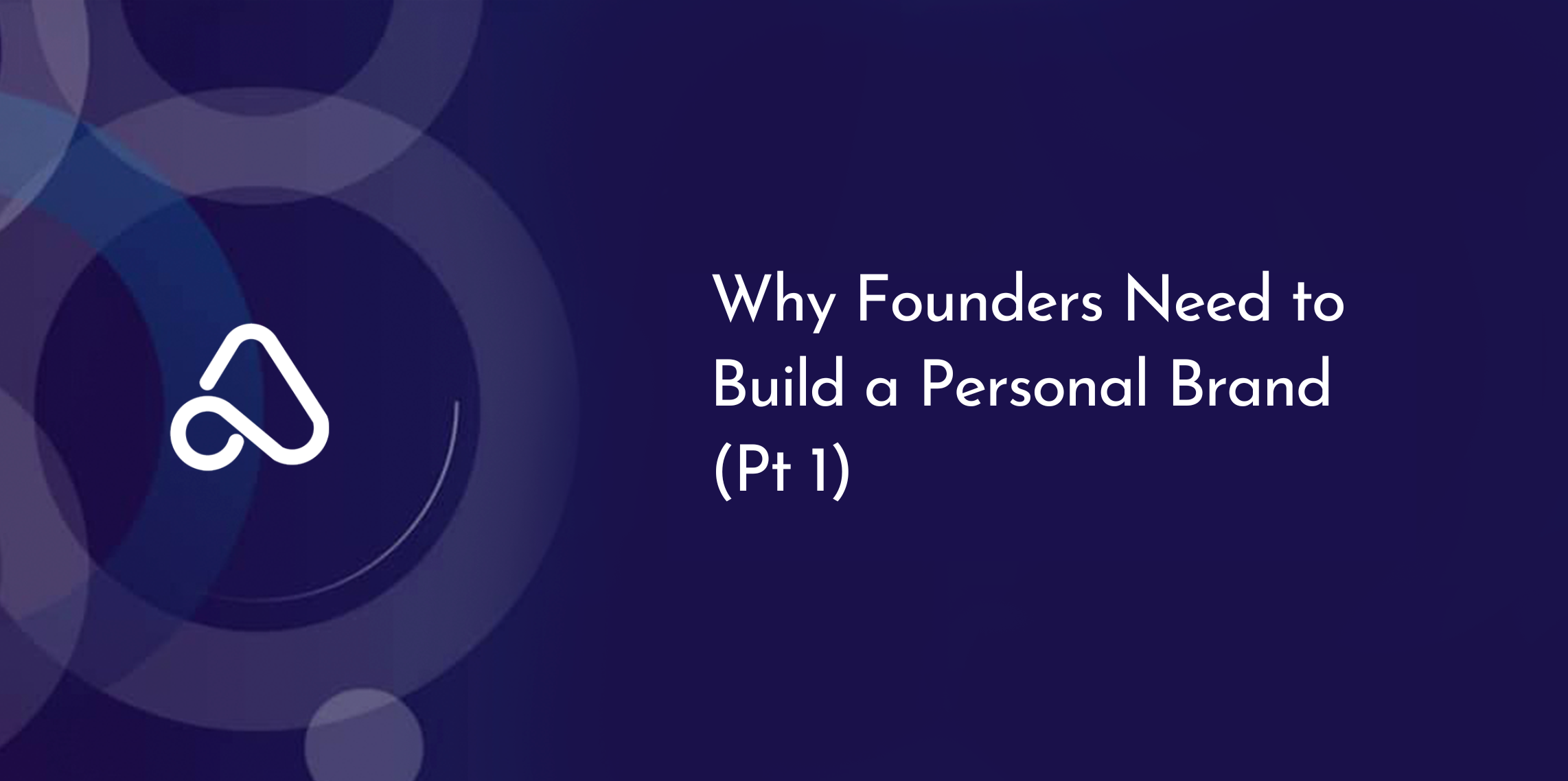Aidi — Why Founders Need to Build a Personal Brand (Pt 1)
Return
Why do you patronise a brand even if their product is costly? It’s because you’ve come to trust the brand after following for a while, doing your research and learning about its founders. That’s the effect of branding. Branding gives people a perception or sense of familiarity towards a product, person, or company.
Now, let’s bring it home to building a personal brand as a founder. What is a personal/founder brand? (I might use founder and personal brand interchangeably in this article). A personal brand is more than just an online or social media page; it is how people perceive you as a person, a professional, an expert in your field, the things you value, etc.
These days, building a great product is not always enough. Investors, customers, and even potential employees want to know the people behind the business. They want to do business with people who inspire them, people they like, and people they trust. This is why it is so important for you as a founder to build a personal/founder brand to strengthen your reputation, credibility, attract opportunities, and most importantly, drive growth for your startup.
Building a strong founder brand is one of the most underrated growth strategies for startups. Many founders focus entirely on their company’s brand, forgetting that people connect with people first, before they connect with businesses. A strong founder brand can position both you and your startup for long-term success.
Why Should Founders Build a Personal Brand?
- To Set You Apart In the Market: Truthfully, your idea might not be the first or best one in the market, but what can really position your startup for real growth is the level of trust the customers have in you as the founder. Positioning yourself to your target audience as a visible and respectable founder, who knows what s/he is doing and is really passionate about solving people’s problems gives you a very high advantage over your competition. When your audience sees you as a leader, they are more likely to pick your solution over a competitor’s, even if both products are similar.
- To Gain Trust and Build Credibility: People trust people more than they trust companies, and people are more likely to trust your startup when they trust you, the founder. Your personal brand can humanize your startup, making it more relatable and trustworthy. By showing yourself as a thought leader in your industry, sharing through social media, public speaking, or content from your startup; your journey, insights, and values; you establish yourself as someone worth paying attention to and investors, customers, and potential hires will feel more confident engaging with your company. Take for instance, Odunayo Eweniyi, the co-founder of PiggyVest; constantly sharing her candid insights on finance, startups, and women in tech have helped build trust, making PiggyVest a go-to savings platform in Nigeria.
- To Attract Investors, Partners, and Customers: Like I mentioned earlier, investors don’t just invest in ideas; they invest in people too. They want to know who is behind the product and if you are trustworthy before investing. They want to know who you are outside of the pitching room– your values and priorities, how you relate with customers, how customers even perceive you, etc. If you have a strong online presence and a well-known track record, it becomes easier to secure funding and strategic partnerships. Investors want to see a visionary leader who understands their market and can execute. Let’s take for instance, again, Iyinoluwa Aboyeji, the co-founder of Andela, Flutterwave, and Future Africa. His strong personal brand in the African tech space has helped him attract capital and build credibility with investors.
- For Crisis Management: Challenges could arise at some point while building your startup (and they always do). If and when they do, will you rely only on your startup’s communications or marketing teams to save you or control the narrative? Why do you think people will believe that if they don’t even know you or your values as a founder? Instead of allowing rumors or media speculation to shape public perception, if you’ve built a strong founder brand, it will be easier to directly communicate with your audience, ensuring transparency and mitigating damage. One of my favorite examples will be the recent occurrence at Hilda Baci’s restaurant. Hilda already has a great personal brand and a notable reputation in her industry, when the complaint was made about her restaurant’s services, she didn’t wait for her restaurant’s brand to mitigate the situation; she used her personal brand to do so, winning the heart of that customer and many others who were already having second thoughts.
- Resilience Beyond Your Startup: Your startup can pivot, merge, or even fail later in the future, but your personal brand stays with you. Your personal or founder brand is not about your company; it’s about you as a person. Having a strong founder brand ensures that even if one venture doesn’t work out, you remain relevant in your industry and well-positioned for your next move. Also, in the event where you start a new company, you may not need to start scouting for customers from scratch. The people who have come to trust you and love you will always be willing to follow you wherever you go. Take for instance, Mark Zuckerberg, the founder of Meta. After selling threads to Elon Musk, Mark decided to start Threads and in less than 24 hours, the platform had 30million sign-ups! Where do you think all those people came from? Why do you think they signed up that quickly too? TRUST!
Now that I’ve been able to establish what a founder/personal brand is and why it is important for founders to have one or start building one, in this article, I know your next question would be “How can I build a founder brand?” In our next article, we will be exploring how you can build a founder brand and platforms you can leverage to build one.





